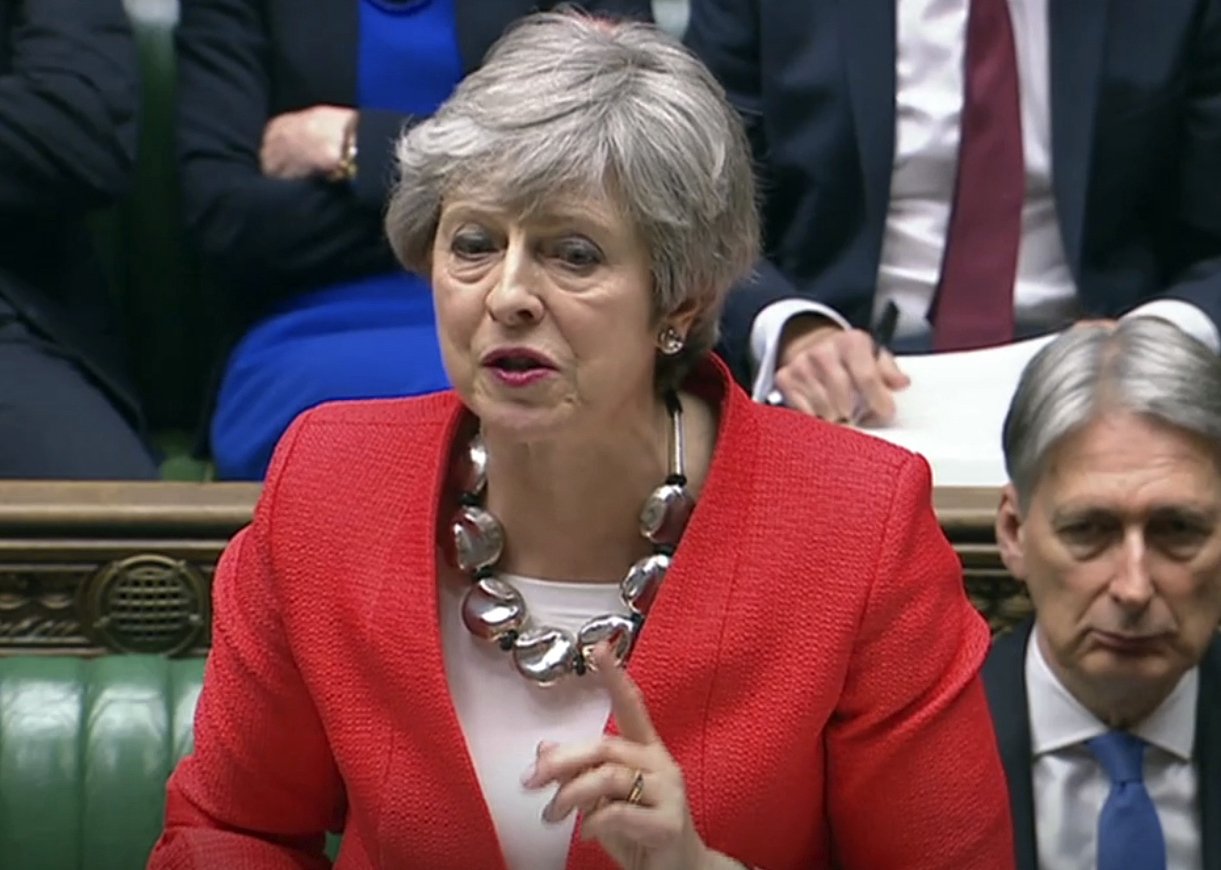
In this grab taken from video, Britain''s Prime Minister Theresa May speaks during the Brexit debate in the House of Commons, London, Tuesday March 12, 2019. (Photo: AP)
Britain’s Parliament delivered a crushing defeat to Prime Minister Theresa May’s European Union divorce deal Tuesday, plunging the Brexit process into chaos just 17 days before the UK is due to leave the bloc.
Lawmakers rejected the deal 391-242, ignoring May’s entreaties to back the agreement and end the political chaos and economic uncertainty that Brexit has unleashed.
It was a narrower outcome than the 230-vote margin of defeat for the agreement in January, before May secured changes from the bloc — but not by much.
With EU leaders warning there would be no more changes or negotiations, and with less than three weeks to go until the UK is due to leave, British lawmakers now face a stark choice between leaving the EU without an agreement to smooth the way, or delaying the country’s withdrawal past the scheduled March 29 departure date.
May — her voice ragged after days of frantic shuttle diplomacy to secure last-minute changes to the deal — had earlier told the House of Commons, “this is the moment and this is the time — time for us to come together, back this motion and get the deal done.”
“If this deal is not passed, then Brexit could be lost,” May said.
But prominent Brexit supporters whose support May needs were unconvinced. Hard-core Brexit supporters in May’s Conservative Party and the prime minister’s allies in Northern Ireland’s Democratic Unionist Party both said they could not support the deal, which Parliament rejected by an overwhelming margin in January.
The DUP, which props up May’s minority government, said “sufficient progress has not been achieved” on the key issue of the Irish border.
The European Research Group of pro-Brexit Conservatives, which has dozens of lawmakers as members, said the amendments “do not deliver ‘legally binding changes’” to the withdrawal agreement, as the government promised.
“In light of our own legal analysis and others, we do not recommend accepting the government’s motion today,” group member Bill Cash said.
At a late-night news conference Monday in Strasbourg, France, May and European Commission President Jean-Claude Juncker announced changes designed to overcome lawmakers’ concerns about provisions designed to ensure the border between EU member Ireland and Britain’s Northern Ireland remains open after Brexit.
The mechanism, known as the backstop, is a safeguard that would keep the UK in a customs union with the EU until a permanent new trading relationship is in place. Brexit supporters in Britain fear the backstop could be used to bind the country to EU regulations indefinitely.


